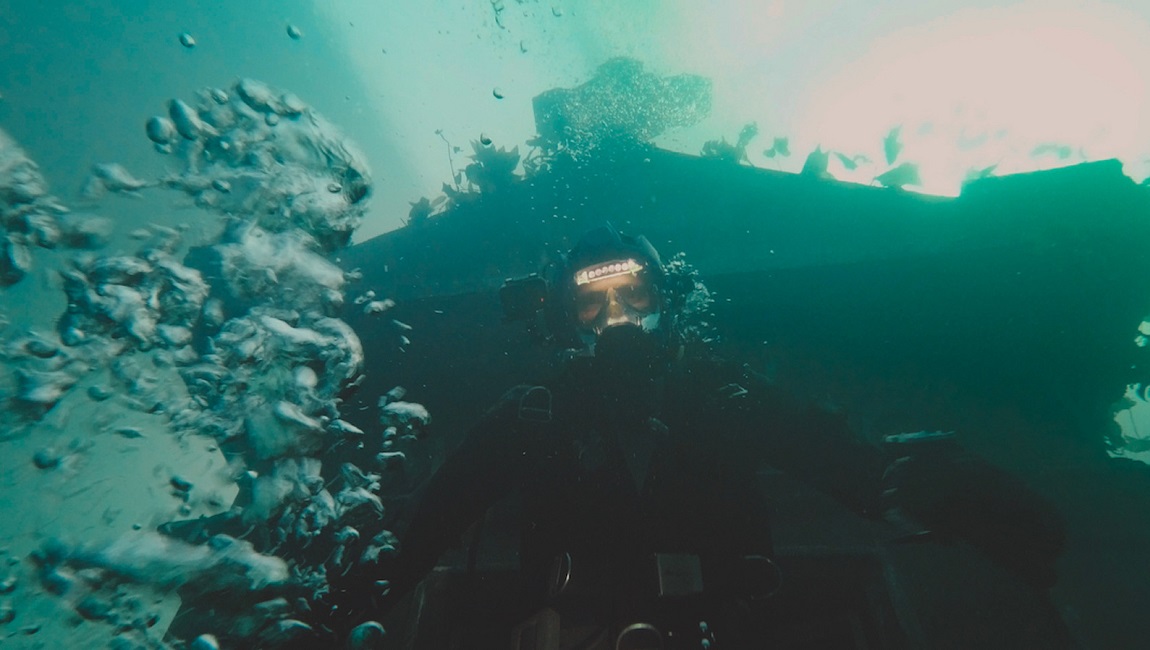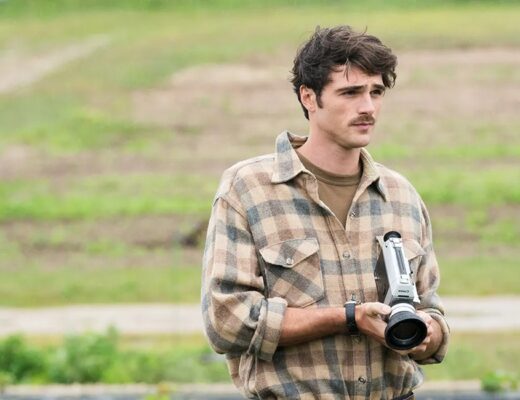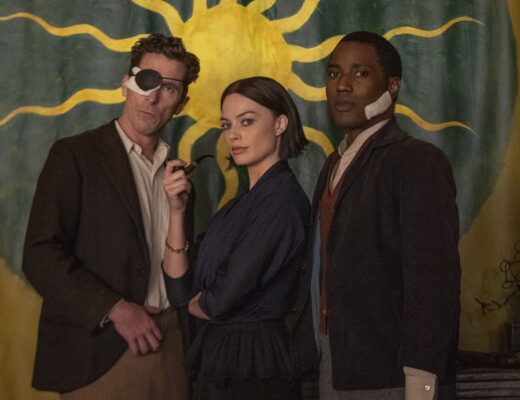The Deep House is a claustrophobic, otherworldly bit of throwback horror that welcomingly pivots away from modern, flattened genre sensibilities.
Forget indie insufferability: it seems vogue these days to premise one’s foray into horror on the shaky basis of some admirable veneration of the aesthetic. This aesthetic premise, more often than not, is of notably narrow definition, drawing clichéd inspiration from moody setpieces, uninspired framing, and — when executed poorly — limp-dick social messaging whose circumscription of populist talking points (mental illness, civil rights, cultural appropriation, etc.) pointedly undermines the medium of horror, regarded as something to be tacked onto pre-existing cultural IP rather than the messily and discomfitingly unpredictable miasma of cultural id its filmic origins so thrillingly recall. In some regard, such a veneration resembles the DIY amateurism of the eighties and nineties, when the advent of home video and a hitherto repressed penchant for gory spectacle yielded archives, official and unofficial, of largely derivative video nasties and found footage. Except that where video nasties were and still are classified as subversive and boundary-pushing, indie horror has pushed into, and become, the mainstream.
There are exceptions, of course, and thankfully the French duo of Julien Maury and Alexandre Bustillo aren’t inclined to pander to horror’s McDonaldization (or gentrification, if we’re feeling generous). Their feature debut, the one that put them on the map, was anything but palatable: at under 80 minutes, Inside graphically dissected bodies and bellies with surgical precision, funnelling primal, biological abjection into the heart of its scissors-wielding conceit. Kandisha, their fifth film, surveys the banlieues and projects with refreshing sociological insight and merciless dread. Maury and Bustillo have since emerged with another tour of trepidation, synthesizing genre convention with technical excellence to no inconsequential effect. The Deep House is effectively a vivid exercise in claustrophobia, comprising two of that condition’s most unsettling locales: the confines of haunted establishments and the dark recesses of the underwater. One such house lies submerged in an artificial lake off the southwest of France, almost too well-preserved in the forty or so years it has lain forgotten. A rising YouTube couple from America, Ben (James Jagger) and Tina (Camille Rowe), decide to try their luck chasing thrills for views, and so, armed with decently professional diving suits and an underwater drone, they descend into the murky pits of history, attempting to discover its trifling secrets but uncovering much more than they had bargained for.
Like the subjects of its critique, The Deep House adopts a thrillingly voyeuristic outlook, positing our gaze through the eyes of the young explorers as they carelessly and heedlessly (with too much faith, perhaps, in the certainty of technology) venture into an unknown site not just of ghoulish apparitions, but also of ghastly crime. Its opening minutes, for example, could easily be mistaken for a genuine vlog hit, wherein boundless calm and cheer course through the couple’s previous expedition in an abandoned Ukrainian sanatorium. But here, Maury and Bustillo realize a largely untapped opportunity at articulating our collective, postmodern fears, and they exploit this potently. Specifically, the filmmakers present a pre-existing backbone of supernatural and aquaphobic terror, moulded with the uncompromising belief in rational presentism and its uncharted inverse: as air supply runs out, hallucinations abound, and French mysticism outwits American smugness. Without going too deep into the film’s grisly reveal, it can be said that Maury and Bustillo, no strangers to icky subject matter, aren’t exactly outdone by their preceding oeuvre here.
Sure, there’s a facileness to the presentation of this reveal, which, compared to Hollywood’s spookier and more “woke” entries, evinces a tacky, almost exploitative character. But horror’s iterations, old or new, have all been exploitative in one way or another; what emerges from The Deep House, aside from a couple of metatextual observations on the inherent unknowability of evil and tragedy, is a palpable unease punctuated with overdoses of adrenaline that would probably put most people off recreational diving. Some of its most frightening moments recall the temporal and spatial liminality of Steve Beck’s Ghost Ship, an otherwise inane thriller marked with highly select displays of the stomach-churning, and it’s these uncanny tensions between incongruent spaces, between past and present, between real and otherworldly which Maury and Bustillo deftly accentuate as their thematic linchpins. Stylistically, The Deep House finds its accomplishment in the purgatorial twilight of DP Jacques Ballard’s shots, masterfully framing the derelict ruins of bourgeois excess alongside Ben and Tina’s increasing anxieties. It’s not a film that feels the need to revere the One Perfect Shot doctrine so beloved by indie movie buffs, and Maury and Bustillo, as masters of their craft, no doubt recognize that horror, despite its frequent distillation into portraiture, is a process of twists and turns, endless shapeshifting, and, more than anything else, is never boring.
You can stream Julien Maury & Alexandre Bustillo’s The Deep House on EPIX beginning on November 5.







